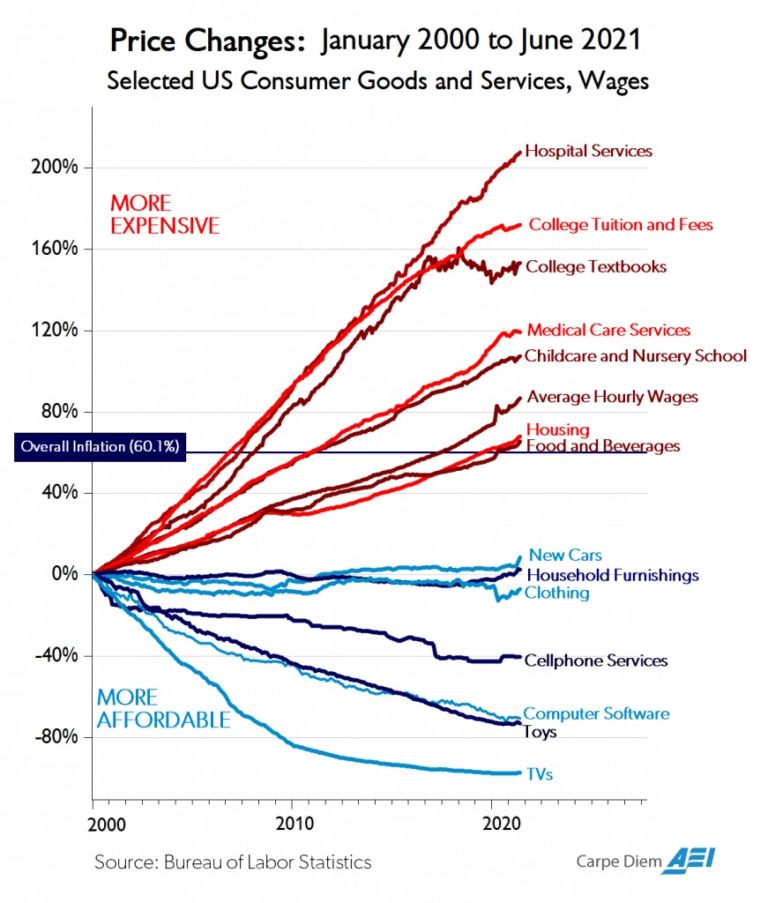The U.S. and even the world is suffering the aftershocks from mad California lawmakers ignoring the simple but inescapable wisdom of Henry Hazlitt’s observation from his Economics in One Lesson:
The art of economics consists in looking not merely at the immediate but at the longer effects of any act or policy; it consists in tracing the consequences of that policy not merely for one group but for all groups.
Hazlitt’s observation is based in a thorough understanding of Frédéric Bastiat’s insight in “What Is Seen and What Is Unseen.” Here are the opening three paragraphs:
In the economic sphere an act, a habit, an institution, a law produces not only one effect, but a series of effects. Of these effects, the first alone is immediate; it appears simultaneously with its cause; it is seen. The other effects emerge only subsequently; they are not seen; we are fortunate if we foresee them.
There is only one difference between a bad economist and a good one: the bad economist confines himself to the visible effect; the good economist takes into account both the effect that can be seen and those effects that must be foreseen.
Yet this difference is tremendous; for it almost always happens that when the immediate consequence is favorable, the later consequences are disastrous, and vice versa. Whence it follows that the bad economist pursues a small present good that will be followed by a great evil to come, while the good economist pursues a great good to come, at the risk of a small present evil.
Policymakers who force their choices on people in the economic sphere without even bothering to consider there could be unforeseen consequences or talk with people trained to look for them — see, e.g., Gov. Roy Cooper trotting out health and public safety bureaucrats, but never anyone trained in economics, to impose his damaging and even deadly lockdowns and severe personal and business restrictions — are behaving as Bastiat’s bad economists. They’re favoring things that look good to them at first glance that are followed by consequences of great evil suffered by the great many.
Consider the havoc wrought by California:
Sundance at Conservative Treehouse has a long article explaining this: California passed an emissions law that required trucks to meet standards that the majority of trucks in America can’t meet. Basically, about half the truckers in America are banned from operating in California.
Because California ports — specifically Los Angeles and Long Beach — are the most convenient for shipments from Asia, this policy created a transportation problem that major importers tried to solve by diverting shipments to other ports. So then you had ships from Asia going through the Panama Canal to reach ports in New Orleans, Tampa, Jacksonville, Savannah, etc.
However, the necessary infrastructure (especially cranes to offload cargo containers) to handle the increased loads at those other ports could not be created overnight. Thus, the bottleneck in California (caused by that state’s stringent emissions laws) led directly to bottlenecks at every other port in America.


